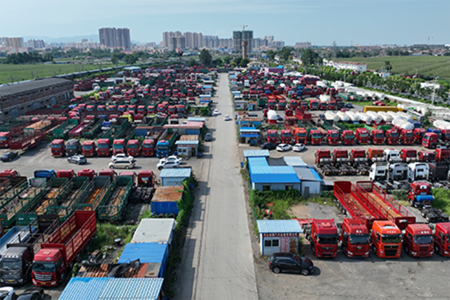difference between light duty and heavy duty trucks
Understanding the Difference Between Light Duty and Heavy Duty Trucks
When it comes to the world of commercial vehicles, one of the primary distinctions that often arises is the difference between light duty and heavy duty trucks. These classifications, which can affect everything from registration fees to insurance rates, play a significant role in the transportation and logistics industries. Understanding these differences is crucial for businesses and consumers alike.
Definitions and Classifications
Light duty trucks are typically classified as vehicles with a gross vehicle weight rating (GVWR) of 14,000 pounds (6,350 kilograms) or less. This category includes popular models such as the Ford F-150, Chevrolet Silverado 1500, and Ram 1500. These vehicles are primarily used for personal transportation, light hauling, and small-scale commercial purposes.
In contrast, heavy duty trucks have a GVWR exceeding 14,000 pounds. This category encompasses vehicles including the Ford F-250 and F-350, as well as larger models like Freightliner Cascadia and Peterbilt 579. Heavy duty trucks are designed for demanding tasks such as long-haul freight transport, towage, and construction-related activities.
Performance and Capability
The performance capabilities of light and heavy duty trucks vary significantly
. Light duty trucks often come with smaller engines, typically ranging from 4 to 6 cylinders, making them more fuel-efficient and better suited for daily driving, commuting, and light loads. Their payload capacity usually ranges from 1,500 to 3,000 pounds, which is adequate for small trailers, tools, or recreational vehicles.On the other hand, heavy duty trucks are engineered for strength and durability. They feature powerful engines, often with 8 cylinders or more, enabling them to haul much heavier loads, sometimes exceeding 30,000 pounds. This capacity makes them ideal for industries such as construction, agriculture, and logistics, where workers require reliable vehicles for transporting heavy equipment and materials over long distances.
difference between light duty and heavy duty trucks

Cost Considerations
When comparing light duty and heavy duty trucks, the initial purchase price is often a significant factor. Light duty trucks are generally more affordable, making them accessible for consumers looking for a versatile vehicle for personal or small business use. However, potential buyers should also consider the long-term costs associated with upkeep, insurance, and fuel.
Heavy duty trucks, while more expensive upfront, are designed with robust components that often lead to lower maintenance costs relative to their use in high-stress environments. The investment is justified for companies requiring reliable vehicles for their operations, as the long-term benefits can outweigh the higher initial costs.
Fuel Efficiency and Environmental Impact
Fuel efficiency presents another key difference between light and heavy duty trucks. Light duty trucks often prioritize fuel economy due to their smaller engines and lighter build. Many models now come with advanced technology aimed at reducing emissions and improving miles per gallon, making them quite appealing to environmentally conscious consumers.
Heavy duty trucks tend to consume more fuel due to their size and the heavier loads they carry. However, recent advancements in diesel technology and the introduction of alternative fuel vehicles are helping to improve the fuel efficiency and reduce the carbon footprint of heavy duty trucks.
Conclusion
In summary, the differences between light duty and heavy duty trucks stem from their classifications, performance capabilities, costs, and fuel efficiency. While light duty trucks are perfect for everyday use and small-scale commercial activities, heavy duty trucks are built for heavy workloads and demanding environments. Understanding these distinctions is vital for anyone looking to purchase a truck, whether for personal use or business needs. As industries evolve and technology advances, both vehicle categories continue to adapt, ensuring that there remains a suitable option for every requirement.
-
SINOTRUK HOWO 84 Electric Dump Truck for Eco-Friendly Heavy HaulingNewsJul.26,2025
-
The Fast 16-Gear Manual Transmission Assembly for Heavy TrucksNewsJul.25,2025
-
Mercedes Benz Actros 1848 42 Tractor Truck for Sale - Reliable PerformanceNewsJul.24,2025
-
High-Quality Water Pump Assembly for Sinotruk Trucks – Durable & ReliableNewsJul.23,2025
-
Premium Truck Engine Antifreeze Coolant Fluid for Heavy Duty VehiclesNewsJul.22,2025
-
FOTON View G7 Mini Bus: Affordable & Spacious TransportNewsJul.22,2025
Popular products

























